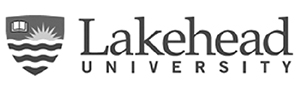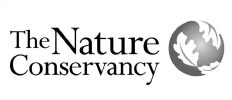
University of Maine Center for Research on Sustainable Forests
Cooperative Forest Research Unit (CFRU)
Since 1975, Maine’s CFRU has conducted excellent research to answer pressing questions in forest management, spanning applied topics in silviculture, water quality, wildlife, biodiversity and more. CRFU’s Annual Reports provide comprehensive looks at the research sponsored by Wagner and other members.
Field work for the following CFRU projects (and others) has occurred on Wagner-managed lands.
- Maine Adaptive Silviculture Network (MASN)
- Working with CFRU, in 2018 Wagner foresters identified a location for the establishment of a MASN operational research installation, comprising a control block and four treatment areas (clearcut, overstory removal, crop tree selection, and high grade). The harvests were conducted in 2019.
- For a project report, see the CRFU’s 2019 Annual Report, page 41.Maine Adaptive Silviculture Network (MASN)
- Quantifying the ecological and economic outcomes of alternative riparian management
- Learn more here
- For a project report, see CRFU’s 2019 Annual Report, page 37.
- Development of Large-Scale Optimal Monitoring Protocols for Carnivores in Maine
- Learn more here
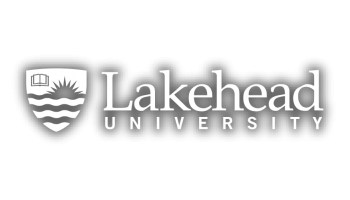
Lakehead University (Thunder Bay, ON)
Wagner has provided ongoing support to Lakehead University and its forestry program, including access to long-term forest genetics research sites (jack pine and black spruce) and a black spruce seed orchard.

The Young Forest Project / Northern Forest Woodcock Initiative
Starting in 2007, Wagner worked with biologist John Lanier and state and regional experts to establish a large scale management area in northern New Hampshire for the benefit of woodcock and other early successional species. In the years since, Wagner has commercially harvested dozens of five-acre blocks to foster early stage regeneration, brush-hogged other areas, and kept certain areas mowed.
A great project description can be found here.

Project SHARE / Improving Aquatic Organism Passage
Wagner has worked with Project SHARE to conserve and enhance Atlantic salmon habitat and populations in the Downeast rivers region of Maine, through a blend of stream crossing assessments, habitat assessments, culvert replacement projects, and other efforts. Wagner staff have served as committed board members.
Improving stream crossings for the passage of aquatic organisms has been an area of fruitful collaboration for Wagner with numerous organizations throughout the region, including:
- Fisheries Improvement Network (FIN), which brings together Maine and federal agencies, landowners and NGOs for education and collaboration. FIN helped spawn Stream Smart crossings and has helped TNC develop the largest database of stream crossings in North America.
- The Nature Conservancy, Maine: Maine Aquatic Connectivity Restoration Project: See article here
- USDA Natural Resources Conservation Service (NRCS) – Maine and New Hampshire
- Maine Forest Service
- Maine Department of Inland Fisheries & Wildlife
- New Hampshire Fish & Game Department
- USFWS (Gulf of Maine Coastal Program)
- Trout Unlimited
- Androscoggin River Watershed Council
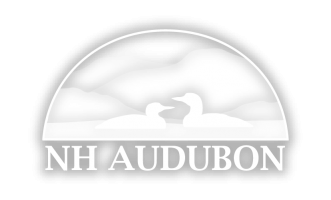
New Hampshire Audubon / Rusty Blackbirds
Rusty blackbirds have experienced dramatic population declines over the last several decades, and scientists have had many hypotheses, but few answers, as to why. Since 2009, NH Audubon researcher Carol Foss has conducted studies of rusty blackbird populations on Wagner-managed lands in northern New Hampshire and western Maine, collecting basic data and testing some of these hypotheses. Studies have ranged widely, looking into nesting success and predation/mortality, habitat selection and use, and more.
See also the CRFU’s 2021 Annual Report, page 25 and earlier CRFU’s 2019 Annual Report, page 76: “Rusty Blackbird Use of Commercial Spruce-Fir Forests in Northern New England.”
Students and faculty at the University of Maine and the State University of New York College of Environmental Studies and Forestry (SUNY ESF) have conducted related research on Wagner lands.
Wagner staff were also involved in the development and review of habitat management guidelines for the species here.
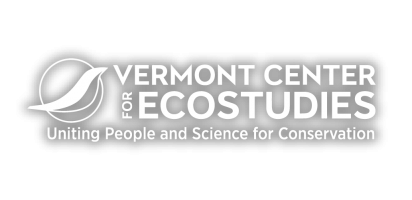
Vermont Center for Ecostudies / Bicknells Thrush
VCE conducts scientific research in support of regional conservation priorities. The organization has played a leading role in understanding and conserving Bicknells thrush, and staff have conducted additional research on Wagner lands relating to BITH use of regenerating softwood stands at more moderate elevations. Its Mountain Birdwatch program monitors a broader suite of mountain birds, and includes routes on high elevation Wagner-managed lands.
Wagner staff were also involved in the development and review of habitat management guidelines for the species: See here.

Northeast MOTUS Collaboration
Wagner has signed an agreement with the Northeast MOTUS Collaboration to allow the installation and maintenance of MOTUS Wildlife Tracking System towers on lands Wagner manages.
These towers capture information from nanotags attached to various study animals. The first tower started operation in 2019 and in its first season (a) documented unexpected patterns of movements by the local rusty blackbirds and (b) identified birds from other studies migrating between northern Canada to the Atlantic flyway.

NCASI / NAFO
The National Council on Air and Stream Improvement (NCASI) provides targeted research in support of sustainable forestry including the impacts of different forest management practices on water quality and at-risk species.
The National Alliance of Forestland Owners (NAFO) has worked with NCASI, the USFWS, and other partners to launch the Wildlife Conservation Initiative, to document and improve the role of private forestland management in the conservation of at-risk wildlife species.

Project Learning Tree
Project Learning Tree (PLT) is now an initiative of the Sustainable Forestry Initiative Inc. Wagner has been a long-term sponsor through the Maine TREE Foundation, and is pleased to continue its participation through the Maine and New Hampshire State Implementation Committees of SFI.
In relation to PLT, Wagner has been a proud sponsor and host of the Maine TREE Foundation’s annual Forests of Maine Teachers’ Tours and the New Hampshire Timberland Owners Association’s Forests of New Hampshire Teacher Tours. In the words of the Maine TREE Foundation, “The tours prepare participants to return to the classroom with stimulating approaches to share knowledge about the forest with students, colleagues, and communities. Throughout the four-day tour, participants engage in Project Learning Tree activities, meet professionals who work in the Maine woods and develop ideas on how to bring the forest to the classroom or the classroom to the forest.”
On a regional, national and international level, Wagner supports the following organizations that focus on forestry, conservation, and education activities.
